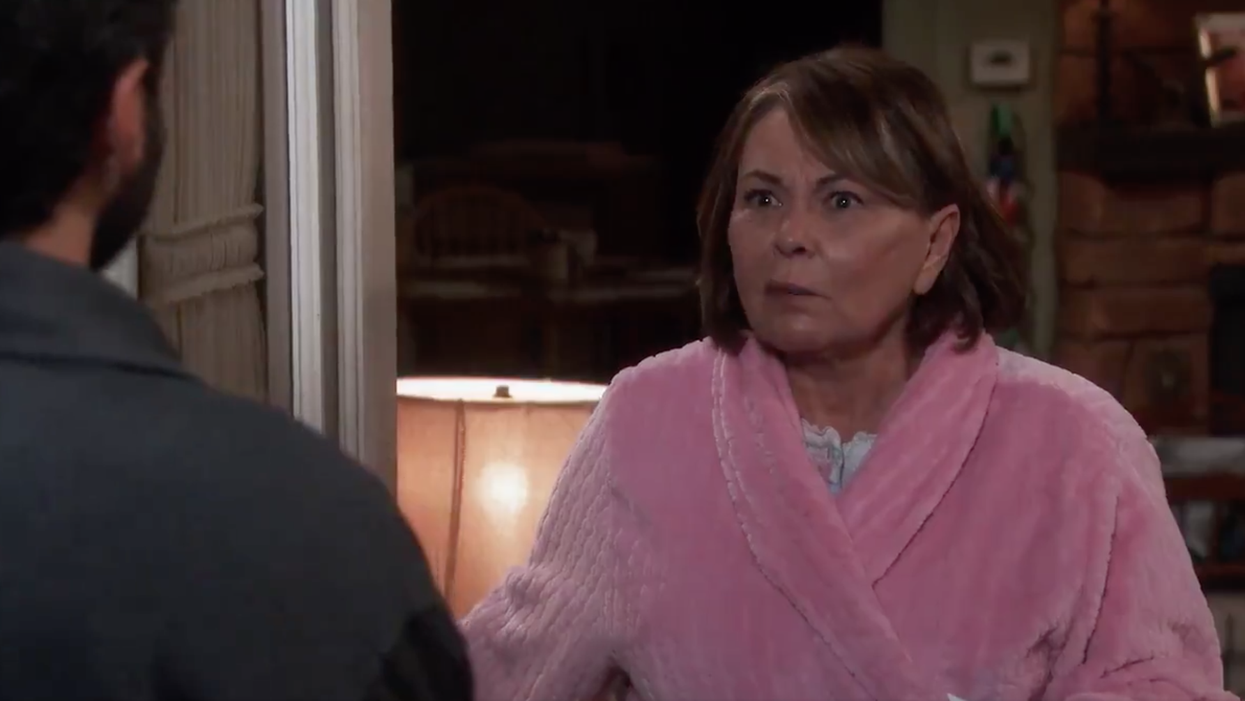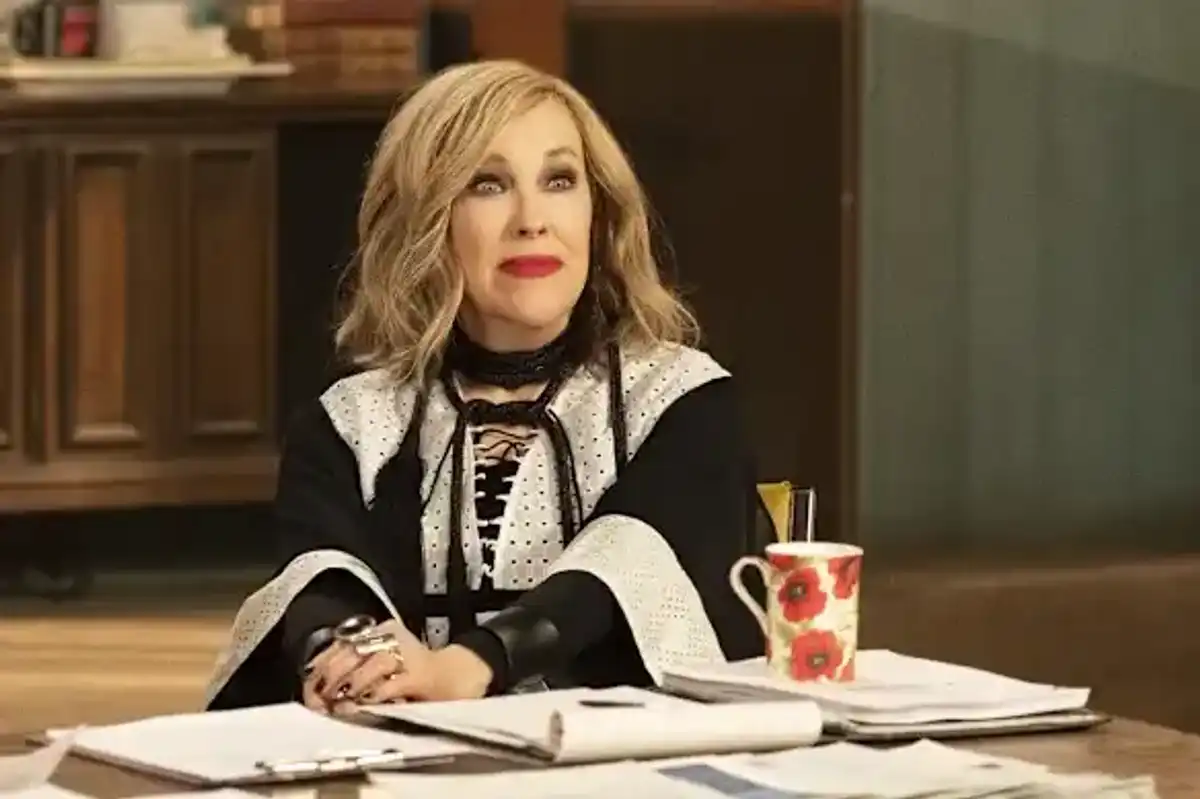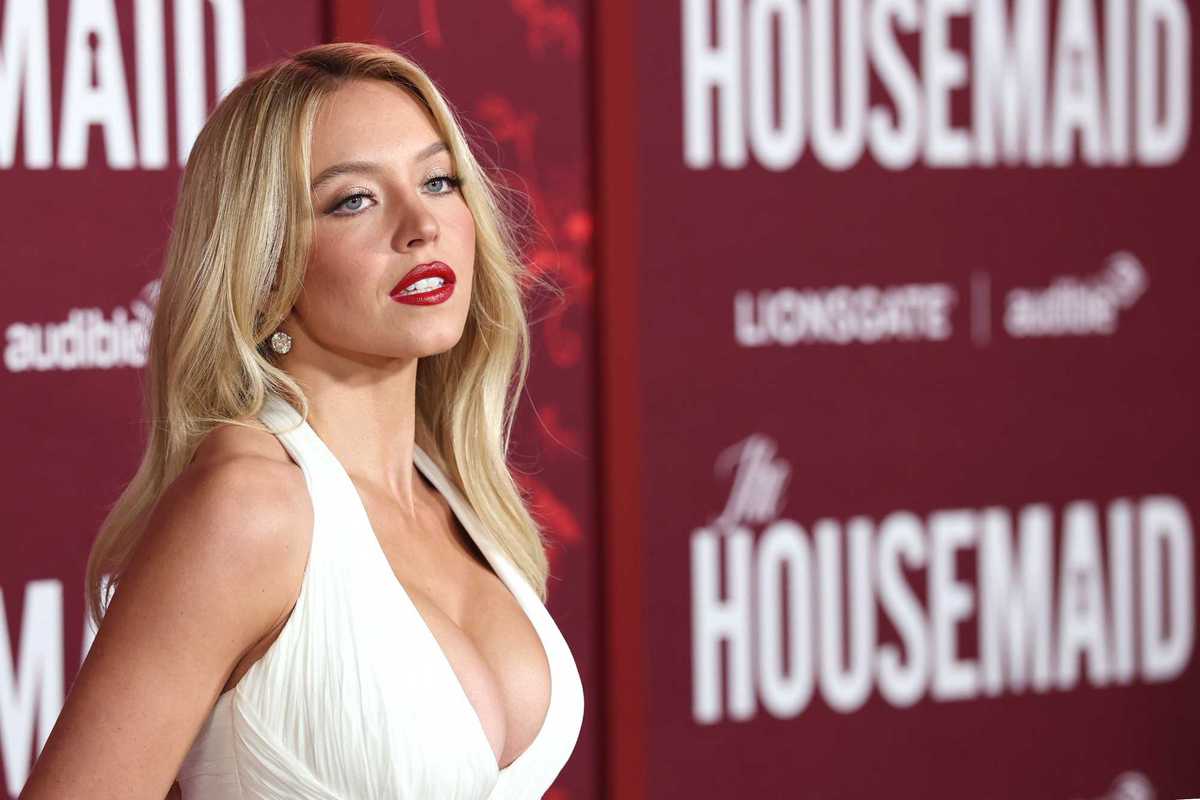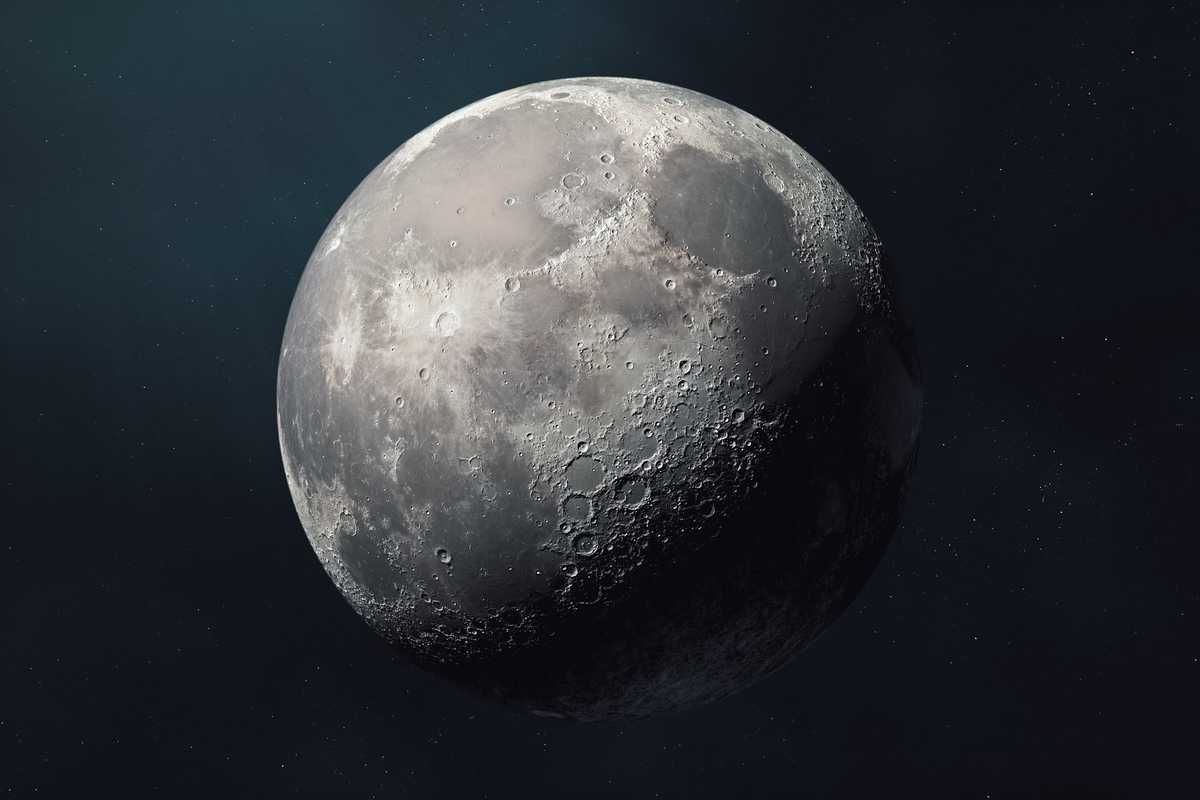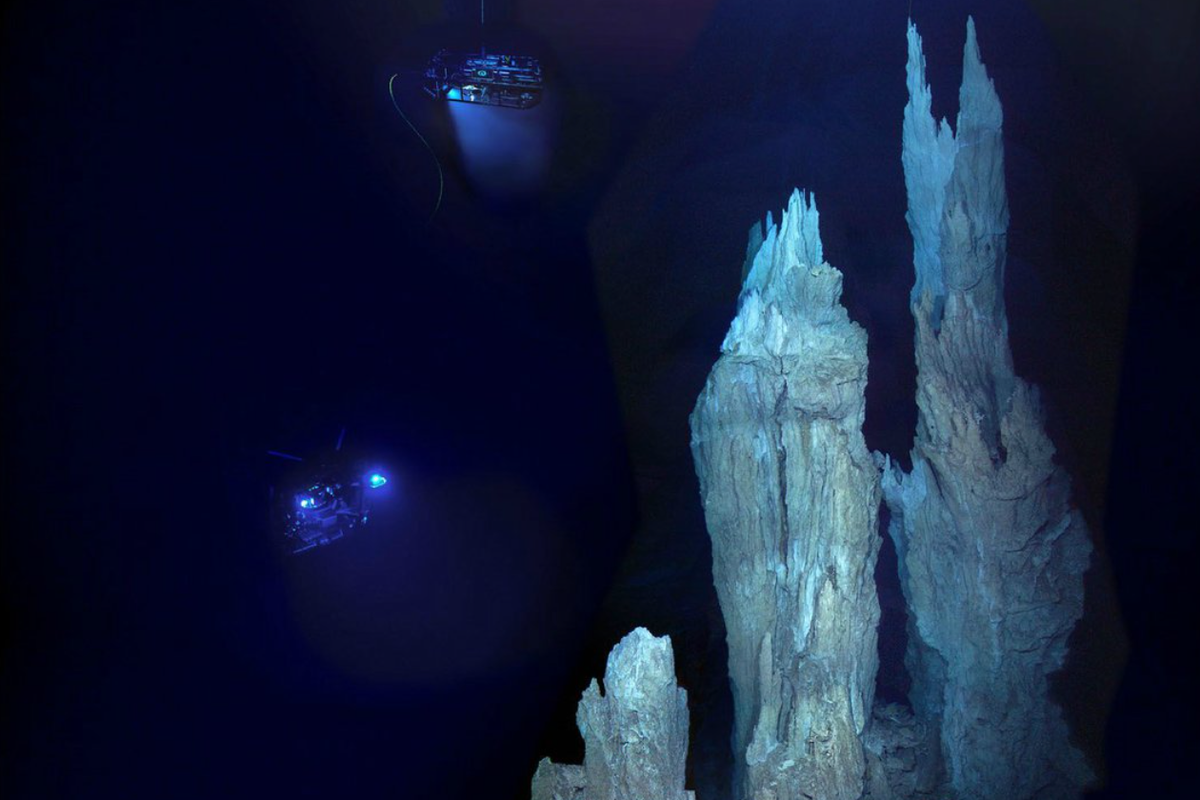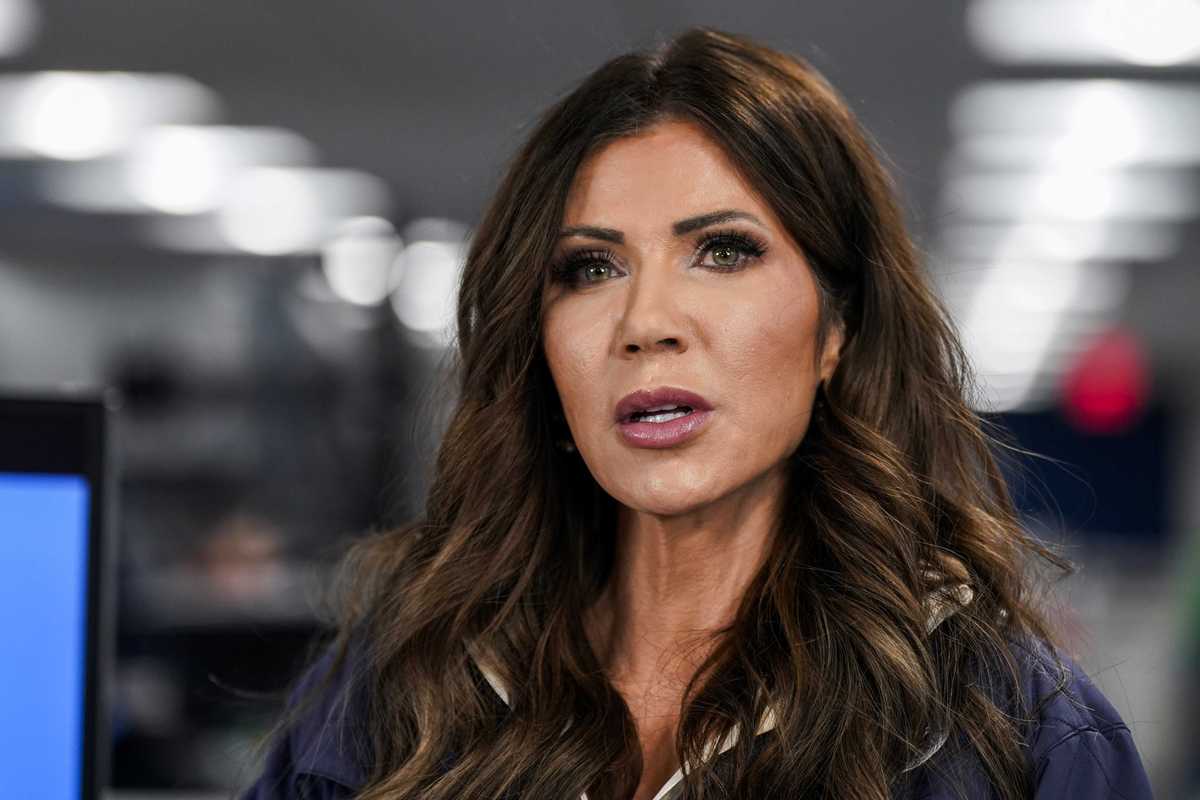Showbiz
Jake Hall
May 12, 2018
Earlier this week, American sitcom Roseanne came under fire for a controversial storyline featuring Muslim neighbours suspected of a terror conspiracy plot.
In the episode, entitled "Go Cubs", protagonist Roseanne Conner begins spying on the new residents due to fears that they are actually a "sleeper cell full of terrorists getting ready to blow up our neighbourhood".
She backs up these claims by referencing the big bag of fertiliser on their lawn, and also states that they're from 'Talibanjistan'.
As the storyline progresses, Conner's husband loses a job to "illegals". The family's WiFi is soon cut, leaving them to guess the password of their new neighbours - unsurprisingly, they come up with increasingly offensive results. In the end, they decide to go and ask politely. When they do, they find common ground with the newly-installed family evidenced by WiFi password 'Go Cubs' and, just like that, prejudice is eradicated.
Ultimately, the idea was to create a commentary on Islamophobia in America and write a storyline which saw one woman overcome her prejudice to ultimately see the similarities she shares with her Muslim neighbours. Islamophobic caricatures were inevitably a part of this narrative.
Show creator Roseanne Barr took to Twitter before the episode aired, anticipating the backlash:
It's undeniably true that Islamophobia is a common conversation point, especially given political fear-mongering around immigration and Islam in both the UK and the US. In fact, Barr herself has found herself in the firing line for statements which sparked anger among more liberal corners of the internet.
However, some have argued that the show's intentions to spark discussion were lost, and that the episode only further perpetuated the ubiquitous 'Muslim terrorist' stereotype. The show also played to the usual 'good immigrant' narrative, which insinuates that basic human rights and respect should be given solely to minorities who earn it.
Furthermore, the episode plays into the idea that Muslim characters can only be on-screen when filling the role of a stereotype, or providing some kind of cultural commentary.
This should be surprising - more than ever, television creators are aware that varied representation of minority groups is essential.
But there's still a problem.
Speaking to indy100, Iman Atta, director of anti-hate crime organisation Tell MAMA, describes positive representation of Muslims on-screen as "essential", and argues that negative depictions "reduce aspirations, cause anger and reduce a sense of people feeling that they have a space in society to develop and grow within".
This only leads to extremism, hatred of the 'other' and a sense of deep division.
This isn't fear-mongering - statistics confirm that Islamophobic hate crimes in the UK are sharply increasing in frequency. "Anti-Muslim hate incidents have risen over the last five years," says Atta, before attributing this increase to a multitude of factors.
This rise is due to more incidents taking place, better reporting and recording functions and the platform that social media has given to extremist groups.
The internet has become a hotbed of Islamophobia, to the extent that social media companies are struggling to keep track of hatred and shut down accounts accordingly. Atta also argues that they have "placed barriers in front of civil society groups who have advocated for better action".
This has meant that far-right extremism is bleeding into wider society.
Despite the very real issues at hand, television creators continue to perpetuate poor Muslim representation.
Roseanne isn't the only time that crude Muslim caricatures have been recreated on-screen; from brown-face and misguided research to racist jokes and Islamophobic rhetoric, we've rounded up a series of shows whose Muslim representation has been met with widespread controversy.
Homeland
Back in 2014, The Washington Post published an article describing Homeland as "the most bigoted show on television". Its justification was lengthy, and based primarily on a series of key factual errors and a reliance on "absurd and damaging stereotypes":
[In Homeland], Muslims can play one of exactly two roles: terrorists or willing collaborators with US intelligence forces.
Creators also made the mistake of naming a Taliban leader - Haissam Haqqani - almost exactly after Husain Haqqani, a former Pakistani Ambassador to the US. The show's promotional posters haven't helped either, depicting protagonist Carrie Mathison, played by Claire Danes, as the one white woman among a sea of threatening, black scarves. Critics have pointed out that this isn't accurate, yet the show's misrepresentation of populous Middle Eastern cities as racially homogenous and visually threatening have failed to acknowledge this.
This lack of attention to detail was noted by three graffiti artists, all of whom were enlisted to spray a fictional Syrian refugee camp in the name of "authenticity".
According to The Guardian, the artists all spotted an opportunity to express their own views; with that in mind, they took full creative licence and sprayed the walls with messages such as "Homeland is racist" which went unnoticed, leaving show creators red-faced.
My Week as a Muslim
Late last year, a Channel 4 documentary, My Week as a Muslim, caused controversy for literally painting a white woman with brown make-up so she could experience life as a Muslim. She is also given crooked teeth and a new, wider nose which complete her 'transformation' into a Muslim woman.
Not only does this makeover erase the fact that white Muslims exist, it continues a long tradition of "brown face" and implies that people are only willing to acknowledge Islamophobia when it's presented voyeuristically through the eyes of a non-Muslim.
The show's protagonist is Katie Freeman, a 44-year-old NHS worker who admits to starting the social experiment with some misguided views of Muslims:
You see them and think they're going to blow something up.
Freeman then spends a week with a Pakistani Muslim family and experiences Islamophobia first-hand, eventually shrugging off her own prejudice. The Muslim Council of Britain last year commented that the show's intention to highlight Islamophobia was laudable, but that its execution was offensive:
The use of brown face and black face has a long racist history, and it is not surprising that it has caused deep offence among some communities.
Had we been consulted, we would not have advised this approach.
24: Legacy
Especially in the years following 9/11, the vast bulk of Muslim characters on-screen have been typecast in the role of 'terrorist'. Early last year, in the wake of Donald Trump's Islamophobic 'Muslim Ban', 24: Legacy aired an episode which was described by The New York Times as an "one-hour Superbowl ad for Islamophobia".
Predictably, the storyline depicts an Al-Qaeda-style team of jihadis waging war on American soil by slaughtering citizens and relying on radicalised Muslim allies to continue their reign of terror.
This representation supports the harmful stereotypes which led to the ill-informed, poorly-researched Muslim Ban in the first place. Recent fatal terror attacks in the US have usually been carried out by self-radicalised 'lone wolves' or duos, some of whom were born in America and none of whom were born in the seven "banned" countries. Others have been carried out by white nationalists, plenty of whom escape the label 'terrorist' when reported on by media outlets.
Article author James Poniewozik accuses the show's storyline of buoying this misinformation:
In the tradition of “24” teen subplots, the story is straight-up ridiculous, but the implication is insidious, especially amid the current demonizing of immigrants and refugees: You let them in, and this is what happens.
Citizen Khan
Back in 2016, Labour MP Rupa Huq made headlines for her repeated critique of BBC sitcom Citizen Khan, which she deemed 'Islamophobic'.
Huq first raised the issue in a House of Commons debate on TV diversity before later developing her views in a Guardian opinion piece, in which she criticised the show's "cardboard cutout" characters and even went so far as to describe it as "stomach-churningly, buttock-clenchingly dire."
The MP then states that the sitcom pales in comparison to other depictions of Muslims on-screen, such as the "pioneering" Goodness Gracious Me and the "far more sophisticated" comedy Four Lions, and bookends her argument by claiming:
We live in an age of rocketing post-Brexit hate crime with a US president elected on a pledge to ban Muslims.
In this climate, Citizen Khan does us no favours at all.
Show creator Adil Ray has defended the comedy, which has attracted hundreds of official complaints over the last few years, by stating that it was never his intention to represent all Muslims; instead, he said it was based on one family and informed by his own experiences as well as those of his co-writers.
In a 2013 interview, he claimed his intentions were always to create a show with a message which was universal.
Yes, [Citizen Khan] is about a Pakistani Muslim family, but what I really want is a white English lady to be watching it and nudge her husband and say, 'That's like you, Mr. Khan is just like you.'
That - and the idea that children love the show - means more to me than anything any reviewer could ever say.
Tyrant
Tyrant was steeped in controversy from the moment it was revealed that a white actor had been cast in the role of an Arab Muslim. The situation deteriorated when the show, which ran for three seasons before being cancelled, finally aired and was immediately accused of fuelling Islamophobia.
In fact, even the pilot was incendiary enough to prompt an official statement from Ibrahim Hooper, National Communications Director of the Council of American-Islamic Relations:
In the pilot of FX's Tyrant, Arab Muslim culture is devoid of any redeeming qualities and is represented by terrorists, murderous children, rapists, corrupt billionaires and powerless female victims.
In Tyrant, even the 'good' Arab Muslims are bad.
Howard Gordon, who was involved with the show's creation, later stated regret at the way the show's production was handled in a lengthy, illuminating New York Times roundtable discussion. He describes the show as "ambitious but ill-conceived" and explains that the lead role was given to "a Brit who had not a drop of..." before other participants cut him off, stating bluntly: "a white guy".
Why we didn't find someone [else], I don't know why. I will call it my inattention, and somehow this happened, and I knew, at some visceral level, this is going to be, among the many challenges, perhaps the greatest challenge.
The show did at least open up some debate around the importance of accurate casting, especially when dealing with representation of minority groups, but many felt its rape-heavy plot lines and crude stereotyping of Arabs as greedy tyrants did nothing to combat offensive archetypes.
Bliss
It only takes a glimpse at Little Britain, or The Catherine Tate Show, or Family Guy, or South Park to see that racist jokes on comedy shows are often given a free pass. Actor David Cross, best known for his role on Arrested Development, wasn't so lucky when he slipped a series of Islamophobic jokes into his sitcom Bliss.
The controversial scene depicts a dinner party which descends into chaos when protagonist Andrew starts hurling racist jokes at his Muslim dinner guest, such as:
I'm sweating like a suicide bomber going through customs... No offence!
Perhaps people were less forgiving because Cross had already been branded a racist by comedian Charlyne Yi, who said the comedian had mocked her clothing and made racist jokes in the past. He eventually tweeted an apology after claiming she may have remembered the situation incorrectly, but he said the damage had been done:
I think it's a dangerous leap to assuming I'm a racist. It's not true and those accusations don't go away.
The X-Files
It was back in 2016 that The X-Files episode 'Babylon' prompted backlash for its reliance on religious narrative and portrayal of Islamic terrorists. Crude stereotypes are perpetuated throughout the episode, from redneck racists to Islamophobic nurses, but the crux of the narrative is that two men recite an Arabic prayer before walking into a gallery and staging a suicide bombing.
In an excellent, comprehensive article published by The International Business Times, writer Ismat Sarah Mangla delves deep into the episode and explores the intent of its creators to comment on prejudice and societal divide.
Mangla argues that they ultimately fall short. 'Babylon' "feeds right into a stereotypical demonisation of Muslims, their beliefs and their rituals", she writes, before going on to claim that Muslims on-screen are only shown behaving in "'Muslim-y' ways". The only exception, she says, "is when they're about to blow people up".
The article creates a compelling, convincing argument that representation should be carefully considered:
It's a shame that Carter doesn't seem to understand that the honest and fair depiction of minorities in popular culture matters, and it's precisely this kind of bungling portrayal that serves to perpetuate the fear and mistrust he says it decries.
More: Everyone should read this guide about what to do if you see Islamophobia
Top 100
The Conversation (0)
